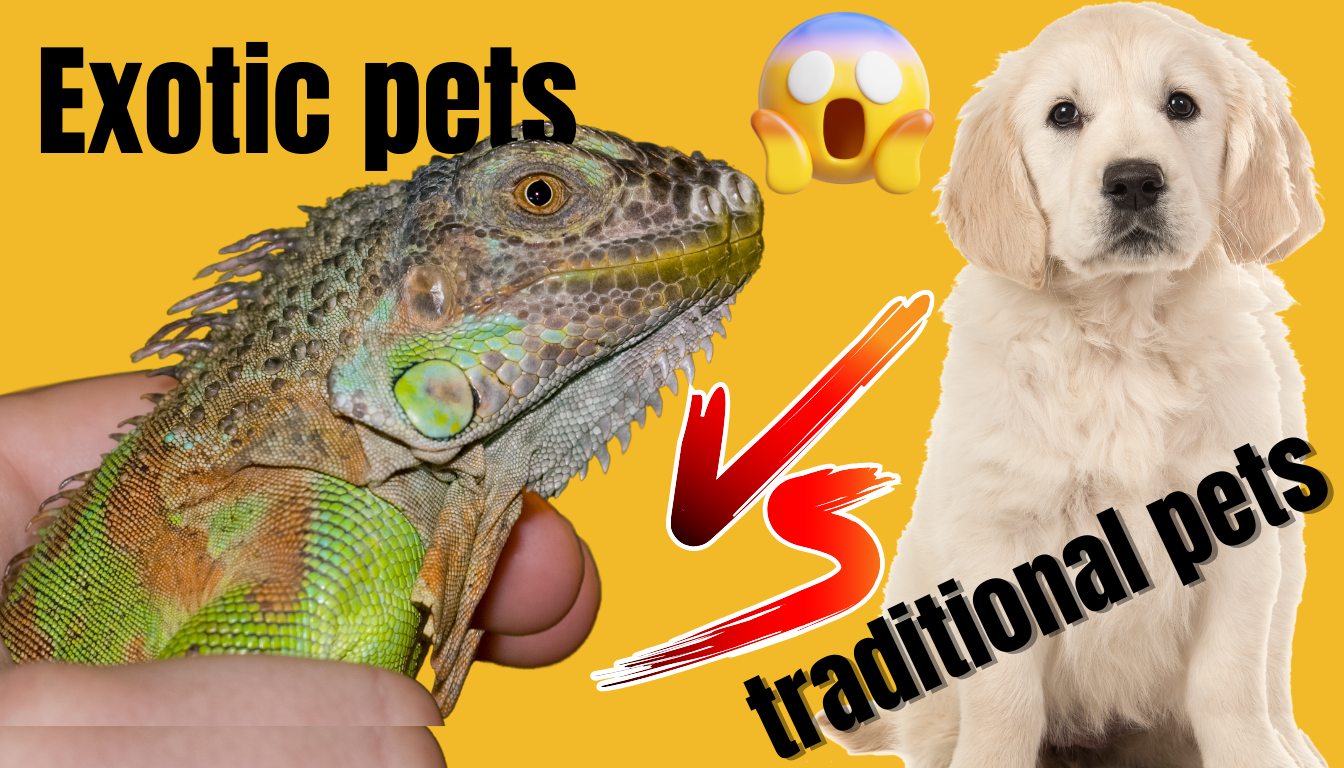Are you considering adding a new member to your family? When it comes to choosing a pet, there are plenty of options to consider. Should you go for the exotic or the traditional? Let’s explore the differences and help you make an informed decision.
Key Takeaways:
- Choosing a pet involves considering exotic and traditional options.
- Exotic pets offer unique characteristics but require special care and potential legal restrictions.
- Traditional pets like dogs and cats provide companionship and are easier to care for.
- Care considerations differ between exotic and traditional pets.
- Behavior and health issues should be considered for all pets.
Now that we’ve piqued your interest, let’s dive into the world of exotic pets and learn more about what makes them so fascinating. Stay with us to uncover the wonders and benefits of traditional pets as well.
Understanding Exotic Pets
When it comes to pets, the term “exotic” often piques curiosity and fascination. But what exactly classifies a pet as exotic, and what unique characteristics do they possess? In this section, we delve into the world of exotic pets to shed light on their appeal, as well as the challenges that come with owning these extraordinary companions.
The allure of exotic pets lies in their captivating beauty, unusual features, and the sense of wonder they inspire. From rare reptiles and vibrant birds to exotic mammals and aquatic creatures, these pets offer a glimpse into a world that is both fascinating and diverse.
However, the decision to keep an exotic pet should not be taken lightly. While they may be mesmerizing, exotic pets often require specialized care and unique environments that must be carefully managed to ensure their well-being. Their distinct needs may call for knowledgeable caretakers who are willing to invest time, effort, and resources into providing the necessary care.
Furthermore, it is crucial to understand that exotic pets are subject to various legal regulations, which may vary depending on the species and jurisdiction. In some cases, the ownership of certain exotic pets may be restricted, necessitating research and compliance with specific permits or licenses.
Embracing the Unconventional
“Exotic pets offer an extraordinary opportunity to experience the beauty and diversity of the animal kingdom within a domestic setting. However, their unique requirements and potential legal restrictions demand responsible ownership and commitment.”
Owning an exotic pet can be a rewarding experience for those who are passionate about wildlife and the enchantment it brings. These pets can provide a deep sense of connection, and the bond formed with an extraordinary creature can be incredibly fulfilling. Additionally, learning about their habitat, behaviors, and specialized needs can be an educational and enriching journey.
As we proceed through this article, we’ll explore the pros and cons of owning both exotic and traditional pets, allowing you to gain a comprehensive understanding of your options. So, whether you’re considering an unconventional addition to your home or are simply intrigued by the world of exotic pets, let’s dive in and discover the wonders and realities of these remarkable companions.
Understanding Traditional Pets
When it comes to choosing a pet, many people are drawn to the charm and companionship of traditional pets. Dogs, cats, and small mammals have been beloved animal companions for centuries, and their popularity continues to grow. With their familiarity and well-established place in our lives, traditional pets offer a range of benefits that make them a top choice for pet ownership.
One of the key advantages of traditional pets is the strong emotional bond that can develop between them and their owners. Dogs, known for their loyalty and unconditional love, become cherished members of the family, providing companionship and support. Cats bring joy with their independent yet affectionate nature, creating a sense of calm and tranquility in their owners’ lives. Even small mammals like rabbits and guinea pigs can provide warmth and entertainment to people of all ages.
Another wonderful aspect of owning traditional pets is the wide array of options available. From small lap dogs to large, energetic breeds, there is a dog for every lifestyle and living situation. For those in smaller spaces, cats can be the perfect choice, as they are highly adaptable and can thrive in apartments and houses alike. And let’s not forget about the charm of smaller mammals like hamsters and gerbils, who can bring delight to children and adults alike with their playful antics.
Traditional pets also offer a sense of community and connection. Dog parks, cat cafés, and online forums dedicated to specific breeds or species allow pet owners to share stories, advice, and experiences. These resources can be invaluable for new pet owners seeking guidance or simply looking for a supportive community that understands the joys and challenges of pet ownership.
In conclusion, traditional pets have earned their place in our hearts and homes for good reason. With their companionship, variety, and the sense of belonging they provide, they continue to be a popular choice for families and individuals alike. Whether you’re a dog lover, a cat enthusiast, or prefer the small and cuddly companionship of small mammals, traditional pets offer a world of love and happiness.
Pros and Cons of Exotic Pets
When considering the possibility of getting a pet, exotic animals may come to mind. These unique creatures can be fascinating and offer a sense of adventure to their owners. However, before making such a decision, it’s essential to weigh the pros and cons of having an exotic pet.
Advantages of Exotic Pets:
- Uniqueness: Exotic pets possess a certain allure due to their rareness and distinct characteristics. Owning one can make you stand out among friends and acquaintances.
- Fascinating Behavior: Exotic pets often display intriguing and captivating behaviors that can provide hours of entertainment and joy for their owners.
Disadvantages of Exotic Pets:
- Special Care Needs: Exotic pets often require specialized diets, living conditions, and environmental enrichment to thrive. Meeting their unique needs can be challenging and time-consuming.
- Legal Restrictions: It’s important to be aware of the legal restrictions associated with exotic pets. Some species may be prohibited or require specific permits to own.
- Financial Commitment: Exotic pets can come with a hefty price tag. From the initial purchase and setup costs to ongoing expenses like veterinary care and specialized supplies, they can strain your budget.
Keeping these pros and cons in mind is crucial for making an informed decision about whether an exotic pet is the right choice for you. Consider your lifestyle, resources, and commitment level before bringing home a unique companion.
“Exotic pets possess a certain allure due to their rareness and distinct characteristics. Owning one can make you stand out among friends and acquaintances.”
Pros and Cons of Traditional Pets
When it comes to choosing a pet, traditional options like dogs and cats have proven to be popular companions for many. These traditional pets offer a range of benefits and drawbacks that potential owners should consider before making a decision.
Companionship and Emotional Bond
One of the main advantages of traditional pets is the companionship they provide. Dogs and cats, in particular, have a strong ability to form emotional bonds with their owners, offering comfort and affection. The loyal and loving nature of these pets can be especially beneficial for individuals seeking constant companionship.
Ease of Care
Traditional pets are generally easier to care for compared to exotic counterparts. Dogs and cats, for example, are domesticated animals with established care guidelines and readily available resources. They are also more adaptable to various living environments and lifestyles, making it easier for owners to meet their needs.
Training and Socialization
Training traditional pets tends to be less challenging compared to exotic pets. Dogs, in particular, can be trained to follow commands, obey house rules, and even perform tricks. Additionally, traditional pets often have more opportunities for socialization, whether through interactions with other pets or participating in community activities.
Prevalence of Allergies
One downside of traditional pets is the potential for allergies. Some individuals may be allergic to pet dander or fur, which can cause respiratory problems and discomfort. It is important for prospective owners to take into account any existing allergies within their household before bringing a traditional pet home.
Did You Know? “Traditional pets offer companionship, ease of care, and the opportunity for training and socialization.”
Overall, traditional pets like dogs and cats can make wonderful additions to a household, providing companionship, comfort, and a sense of joy. However, it’s important for potential owners to consider their lifestyle, commitments, and any allergies they may have. This ensures a well-informed decision that aligns with their needs and the welfare of the pet.

Care Considerations for Exotic Pets
When it comes to owning exotic pets, providing proper care is crucial to ensure their well-being and happiness. These unique animals have specific needs that differ from those of traditional pets. To help you navigate the world of exotic pet care, here are some key considerations to keep in mind:
Habitat Setup
Creating a suitable habitat for your exotic pet is essential. Research the specific requirements regarding temperature, humidity, lighting, and enclosure size to mimic their natural environment. Whether it’s a reptile, bird, or small mammal, consult with experts or reputable sources to set up the ideal enclosure for your pet.
Diet
Each exotic species has its own dietary needs. From insectivores to herbivores, it’s important to provide a well-balanced and species-appropriate diet. Research their nutritional requirements and consult with a veterinarian specializing in exotic animal care to ensure your pet gets the nutrients they need.
Veterinary Care
Regular veterinary check-ups are crucial for the health of your exotic pet. Unlike traditional pets, finding a veterinarian with expertise in exotic animals may be necessary. These specialized veterinarians can provide routine health examinations, vaccinations, and address any specific health concerns unique to your exotic pet.
Socialization Needs
Exotic pets often require socialization, just like traditional pets. Some species are more social and thrive with regular interaction and mental stimulation. Research the social needs of your exotic pet and provide opportunities for bonding and engagement to promote their overall well-being.
“Proper care and attention are essential for exotic pets, ensuring they live long and healthy lives.”
By understanding and addressing these specific care considerations, you can provide a comfortable and nurturing environment for your exotic pet. Remember, each species has its own unique requirements, so thorough research and consultation with experts are key.
Continue reading to discover the care considerations for traditional pets and gain a comprehensive understanding of the responsibilities and joys associated with pet ownership.
Care Considerations for Traditional Pets
When it comes to caring for traditional pets, there are several important guidelines and considerations to keep in mind. Whether you have a dog, cat, or small mammal, providing proper care is essential for their health and well-being.
Diet and Feeding
Understanding the dietary needs of your traditional pet is crucial. Consult with a veterinarian to determine the appropriate type and amount of food to provide. Follow a regular feeding schedule and ensure access to fresh water at all times.
Grooming and Hygiene
Grooming helps keep your traditional pet clean and comfortable. Regular brushing, bathing, and nail trimming are essential for their overall hygiene. Additionally, preventive measures such as flea and tick control should be incorporated into their grooming routine.
Exercise and Mental Stimulation
Exercise plays a vital role in maintaining the health and happiness of traditional pets. Dogs require daily walks and playtime, while cats benefit from interactive toys and scratching posts. Small mammals should have ample space to roam and opportunities for exploration.
Preventive Veterinary Care
Regular veterinary check-ups are necessary to ensure the well-being of traditional pets. Vaccinations, parasite prevention, and routine health screenings are essential for early detection and treatment of any potential issues.

Providing the proper care for traditional pets is a commitment that brings joy and companionship to both you and your pet. By following these care considerations, you can create a healthy and fulfilling life for your beloved animal companion.
Behavior and Health Issues
When it comes to owning pets, understanding their behavior and ensuring their health and well-being are paramount. Whether you choose an exotic pet or a traditional one, it’s essential to be aware of the potential issues that may arise.
Both exotic and traditional pets can exhibit behavioral challenges. Exotic pets, such as reptiles or birds, may have specific environmental requirements that must be met to prevent stress and behavioral abnormalities. On the other hand, traditional pets, like dogs or cats, may exhibit aggression or separation anxiety if not properly trained and socialized.
Regarding health, exotic pets often have specialized dietary needs, which, if not met, can lead to nutrient deficiencies and serious health conditions. Additionally, exotic pets may be more prone to certain diseases or parasites, requiring vigilant monitoring and regular veterinary check-ups.
Traditional pets are susceptible to their own set of health issues. For example, dogs can experience joint problems or obesity if not given adequate exercise and nutrition. Cats, on the other hand, may develop dental issues or obesity if their diet is not properly managed.
To ensure the well-being of your pets, both exotic and traditional, it’s crucial to establish a routine that includes regular check-ups with a qualified veterinarian. These health assessments can help detect early signs of illness, provide preventive measures, and offer guidance on behavioral concerns.
Regular veterinary care is essential to monitor your pet’s health, address any emerging issues, and receive expert guidance on behavior and nutrition.
By prioritizing behavior and health, you can provide your pets with the care they need to thrive. Remember, a happy and healthy pet is a lifelong companion.
Conclusion
In conclusion, the decision between owning an exotic pet or a traditional pet ultimately comes down to personal preference and lifestyle. Exotic pets offer a unique and fascinating experience, with their extraordinary appearance and behaviors. However, they require specialized care, often including expensive habitats, specific diets, and sometimes even permits due to legal restrictions.
On the other hand, traditional pets like dogs, cats, and small mammals have been companions to humans for centuries. They provide unconditional love, companionship, and emotional support. Traditional pets are generally easier to care for and are readily accepted by most communities. They can be a great fit for individuals or families with a busy lifestyle or limited resources.
When making the decision to bring a pet into your life, it is crucial to consider your own preferences, available resources, and commitment level. Think about the amount of time, effort, and financial investment you are willing to provide for your pet. Additionally, research the specific needs and requirements of any potential pet to ensure you can meet their unique demands.
Ultimately, whether you choose an exotic pet or a traditional pet, the most important factor is the well-being and happiness of the animal. Take time to thoroughly research and understand the responsibilities involved before making a decision, and remember that both types of pets can bring joy and companionship into your life.

